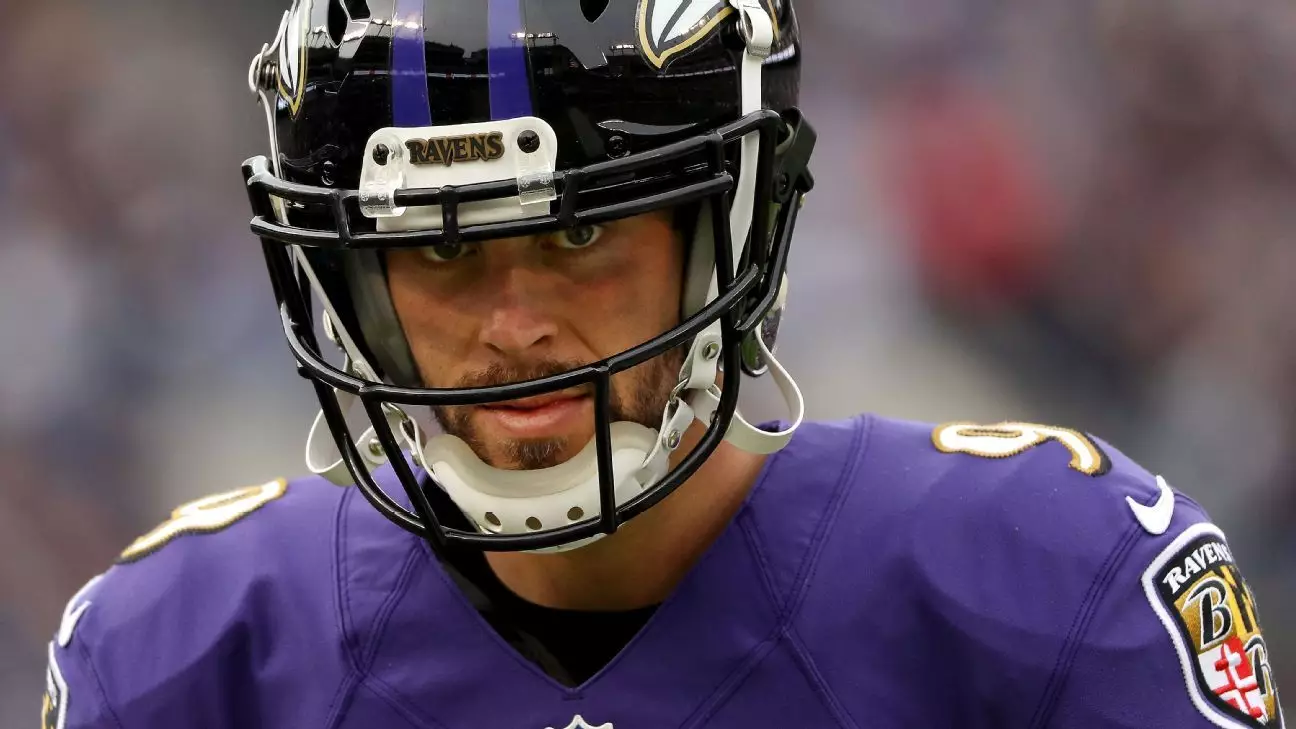The recent allegations against Baltimore Ravens kicker Justin Tucker have sent shockwaves through the NFL community, raising concerns about athlete conduct and the responsibility of public figures. An investigation by the Baltimore Banner revealed that a total of 16 women, all therapists from various high-end spas, have come forward with claims of sexual misconduct attributed to Tucker, effectively shifting the narrative for what many considered a model athlete. This article seeks to explore the implications of these allegations, the responses from Tucker and his representatives, and their potential impact on the broader landscape of professional sports.
Initially surfacing on January 30, the allegations suggest a troubling pattern of behavior over a span of four years, from 2012 to 2016, which coincided with Tucker’s early career in the NFL. Multiple women have recounted experiences that range from inappropriate eye contact to alleged exposure of intimate body parts. Perhaps the most serious claim involves accusations of Tucker leaving what was perceived to be ejaculate on a massage table.
Such claims lead to critical questions regarding accountability and how professional athletes navigate personal interactions within their professions. The consistency of these reports — now encompassing eight different spas — poses challenges for Tucker, as the volume and gravity of the accusations compel both NFL officials and the Ravens organization to respond.
At the Super Bowl press conference, NFL Commissioner Roger Goodell expressed the league’s concerns about these allegations. His acknowledgment of the seriousness of the situation underscores the necessity for due diligence in addressing misconduct claims, especially in the context of evolving societal norms around sexual harassment. The NFL’s personal conduct policy allows for disciplinary measures against players found guilty of misbehavior, highlighting the league’s attempt to maintain its integrity amidst turmoil.
In contrast to the serious nature of the allegations, Tucker’s legal team remains steadfast in their defense, labeling the claims as “unequivocally false” and characterizing the statements made by the alleged victims as exaggerated. Tucker himself took to social media to express his disdain for what he termed a misrepresentation of harmless interactions. His lawyers denied the allegations’ validity, further arguing that the situation is speculative and impossible to prove definitively.
These contrasting narratives raise critical points regarding the presumption of innocence and the immense weight of public opinion. The Ravens organization has also taken a measured approach, indicating that they are monitoring the situation closely, though their prior comments on maintaining a zero-tolerance policy for misconduct complicate the matter.
The allegations against Tucker come at a crucial time when professional sports are under increasing scrutiny regarding the conduct of their players. With high-profile cases of misconduct being more publicized and discussed, there is a growing expectation that both leagues and teams will take more proactive steps to address and curtail inappropriate behaviors.
This situation also opens up conversations about power dynamics within these professional settings. Many of the therapists who chose not to report Tucker’s actions cited fears of retaliation, not only affecting their careers but also impacting the larger conversation about workplace safety and trust. How professional athletes, who often wield significant influence, interact with individuals in vulnerable positions deserves attention in shaping future policies.
As this situation unfolds, all parties involved must confront the implications of the allegations against Justin Tucker. The superlative accomplishments of Tucker’s career are now clouded by controversy, necessitating a balanced discourse around accountability and justice. The Ravens, the NFL, and stakeholders in the broader context of professional sports must navigate the delicate balance between supporting athletes while ensuring that allegations of misconduct are addressed with the seriousness they deserve. As the dialogue around athlete behavior continues to evolve, how this case is handled will likely set precedents in the NFL and beyond. The future of both Tucker’s career and the broader implications for professional sports culture rests in the balance.


Leave a Reply